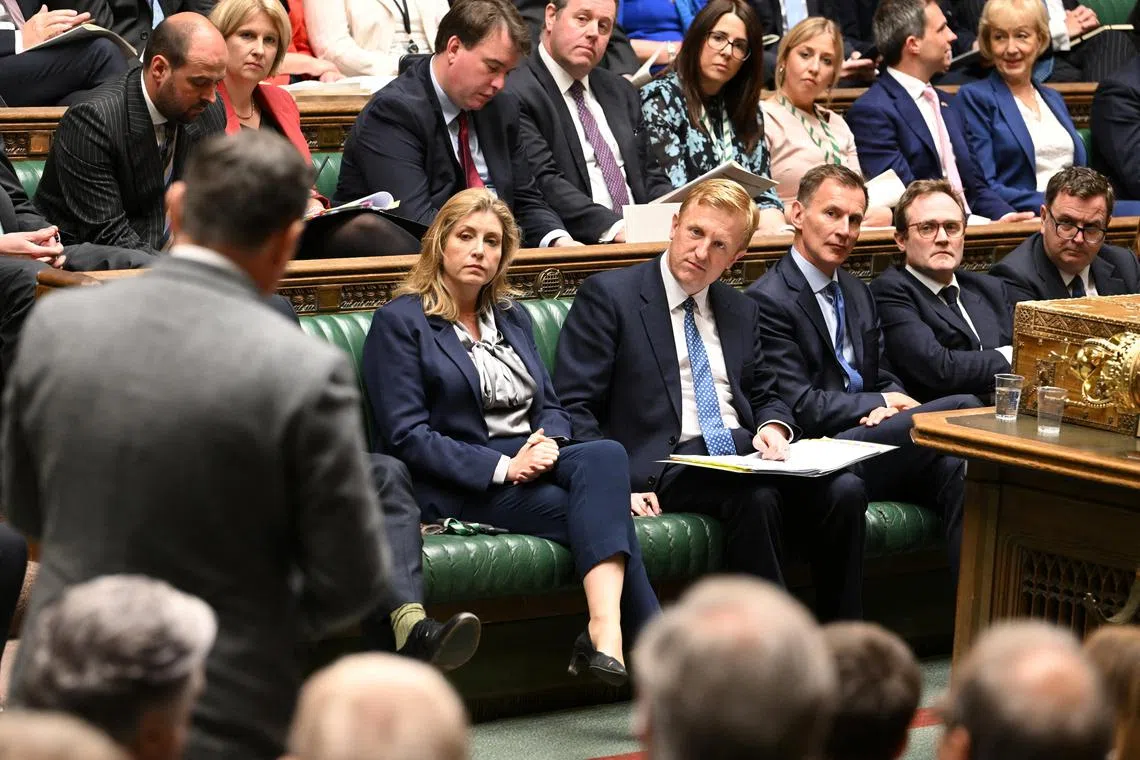British Parliament to crack down on misconduct, abuse
Sign up now: Get ST's newsletters delivered to your inbox

Britain's Leader of the House Penny Mordaunt (sitting, left) said that Parliament remains “in a permanent swamp of complaints, cases and concerns”.
PHOTO: REUTERS
Follow topic:
LONDON – The House of Commons on Monday began work on addressing the mounting wave of misconduct across Westminster that has included multiple allegations of sexual abuse and harassment against MPs in recent years.
Parliament remains “in a permanent swamp of complaints, cases and concerns”, Leader of the House, Ms Penny Mordaunt, said at the start of a debate on whether MPs under police investigation for violent or sexual offences should be excluded from entering Parliament.
“Barely a week goes by without something happening that calls into question our adherence” to parliamentary rules, she said.
The Commons Commission has proposed that MPs facing “credible allegations of sexual or violent offending” should be subject to a risk assessment before a panel decides whether to exclude them. The exclusions would apply to the parliamentary estate and parliamentary-funded travel.
Ms Mordaunt told MPs late on Monday that there are more than 12 different bodies who oversee the conduct of MPs, creating an “incredibly complicated standards landscape”. A criticism, often raised of the procedure, is that victims of misconduct by MPs often do not know who to report their experience to.
She recommended that the whole parliamentary standards approach should be examined and said she plans to launch a forum for political parties, government and parliament to tackle specific issues of concern together.
Former prime minister Boris Johnson was ousted last year
This month, the Labour Party suspended two of its MPs.
One, Mr Bambos Charalambous, had the whip removed due to a complaint about his conduct, and another, Mr Geraint Davies, was suspended following a report by Politico into multiple accusations of inappropriate behaviour toward junior female colleagues, some of which allegedly took place in the parliamentary estate.
“We as individuals can’t outsource consideration of such matters to others” or pretend the problems don’t exist, Ms Mordaunt said. “We can’t shirk our responsibility to find solutions to them or turn a blind eye when we see wrong being done.” BLOOMBERG

